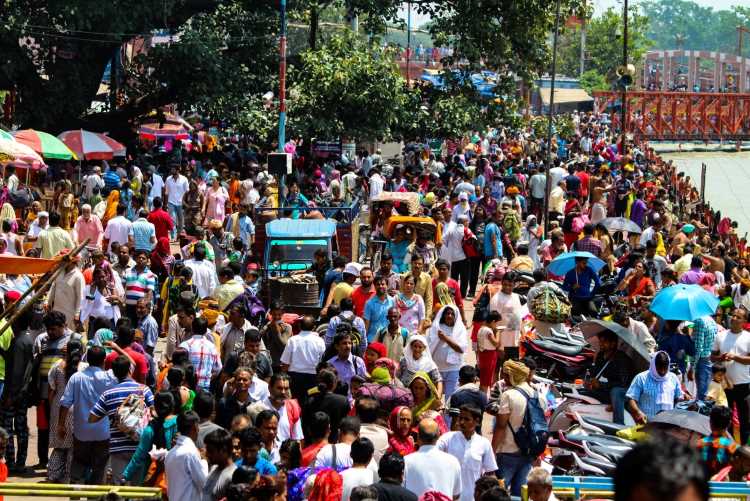
Election season in India brings uncertainty and occasionally, optimism. Given that polls are indicating an easy victory for Prime Minister Narendra Modi’s Bharatiya Janata Party, the 18th Lok Sabha election may feel less uncertain than any recent national election in India. However, democracies are strange animals, so we can never be entirely sure of an outcome until the results are released. While the international business and security audience optimistically expects the Indian governments to make big moves after an election, this year has already broken this “model” significantly. We have witnessed significant trade, investment, and security steps in the weeks leading up to the election.
The Bharatiya Janata Party has won single-party majorities in the last two Lok Sabha elections. Most analysts believe they will have a relatively easy pathway to a third consecutive victory this spring. A range of pre-election polls held in late 2023 and early 2024 predict the BJP winning anywhere from 295 seats up to 378 seats. 273 seats are required for a majority.
READ I Indian IT industry adapts as global headwinds test resilience
Even if these predictions come true, it is important to remember that there remain real limitations on the Modi government’s authority. The BJP’s Rajya Sabha seat total has been stuck at around 37 percent of seats due to a relatively weak showings in many state elections. So, the BJP has limited ability to move tricky legislation through the Parliament. The BJP’s partner parties in the National Democratic Alliance (NDA) coalition continues to shift.

Lok sabha election and reforms
When it comes to executing national programmes, the national government needs to rely on state governments. Today, the BJP has only 12 chief ministers among the 30 states and territories. This is down from the party’s peak of 14 chief ministers in 2017. Additionally, due to constant shifts in the NDA alliances, it is not credible to state that an NDA chief minister is the same as a BJP chief minister.
Looking at the window for policy change, there is an understandable belief that big reforms are more likely just after a government wins a fresh mandate. Yet the last five years have completely thrown this notion overboard. For instance, looking at the Modi government’s first year of its most recent term:
Domestic reforms: Looking at our own India Reforms Scorecard, of the 30 big reforms we have been tracking through the Modi government’s second term, only one took place in the first year after the April-May 2019 election—the drop-in corporate tax rate from 30 percent to 25 percent.
Trade: India withdrew from the Regional Comprehensive Economic Partnership in November 2019.
Foreign investment: The Modi government only relaxed rules in two sectors— coal and single brand retail— after its 2019 election victory, compared to over 20 FDI policy reforms in the year after their initial win in 2014.
Most of the government’s positive reform steps took place amid the Covid-19 accentuated economic slowdown.
Surprisingly, the Indian government has taken some very significant steps on foreign investment and trade in the weeks leading up to the 2024 Lok Sabha election. Some key policy measures include:
Space FDI: On March 4, 2024 the Department for Industry and Internal Trade (DPIIT) issued Press Note 1, 2024 which opened up foreign direct investment in the sensitive space sector to 100 percent FDI.
Trade deal: On March 10, 2024, India concluded a Trade and Economic Partnership Agreement (TEPA) with the four-member European Free Trade Association (EFTA).
Trade openness: In her February 1, 2024 Budget Speech, Finance Minister Nirmala Sitharaman pointed out that this year’s interim budget would not include any increases in customs duties—a welcome change from the government’s prior budgets which typically see far more increases in rates than decreases.
Even on security relations, India has taken significant, if under-reported steps in the months ahead of the national election.
Defence exercises: India held a coast guard exercise with the United States, Exercise Sea Defender, in the Andaman & Nicobar Islands in March 2024. Access to this region has been viewed with particular sensitivity in India.
Defence interoperability: In November 2023 India agreed to join Combined Maritime Force Bahrain as a full member.
Election season provides an important moment for India’s partners to reflect on successes and challenges in our engagements with India. But when we look at the impact of elections on the timing and pace of our key engagements—a significant shift has clearly happened. Based on some of the Modi government’s recent moves on reforms and security cooperation—key issues are no longer meant to be buried around election time. Decoupling priority issues from election related constraints is certainly a welcome step. Globalisation is increasingly becoming a positive part of political campaigns. Or at least, such steps are viewed in Delhi as politically neutral which is still encouraging.
Richard Rossow is a leading expert in US-India commercial ties. He leads the India program at the Center for Strategic & International Studies, and the India advisory team at McLarty Associates.

